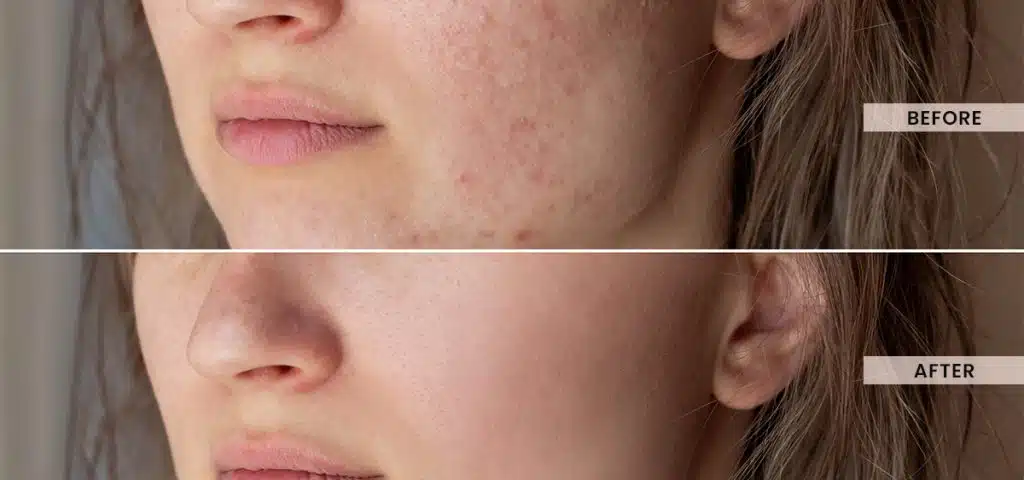
Do you frequently get red, irritated, or break out when you wear makeup? With sensitive skin, locating the appropriate cosmetic products may continuously seem like a test of trial and error.
Although CC creams are a combination of skincare and foundation, not every type is appropriate for sensitive skin. The upshot is that, with a bit of know-how, you can still select a CC cream that will perfect your complexion and not irritate it.
This blog will give you all the information about selecting and applying CC cream on sensitive skin without any harm.

CC stands for “Color Correcting.” These creams are multitasking formulas that contain skincare and makeup. CC creams tend to be very light in comparison to thick foundations and they are designed to color-correct the skin tone, be it redness, sallowness or coarse finish and they are popular with sensitive-skinned people.
The true benefit of CC cream lies in its hybrid nature. Most formulas include SPF, moisturizing agents, and active ingredients aimed at improving skin health over time.
However, not all CC creams are made with sensitive skin in mind. Choosing the right one depends on understanding what’s in the formula—and what’s not.

Starting with the packaging is always a must. Terms such as hypoallergenic, dermatologist-tested and clinically tested help to provide some comfort that the product has been tested in some basic safety testing. They do not determine the risk of irritation absolutely but reduce possibilities.
Reactive skin requires soothing assistance. Rose, fressia and jasmine extracts are some of the ingredients which have anti-inflammatory and skin soothing effects. These natural ingredients help reduce redness, irritation and yet provide even-toned coverage.
The labeled non-comedogenic products are formulated in such a manner that they do not block pores, and this is a much-required characteristic on sensitive or breakout-prone skin. They do not have to be oily in nature but due to clogged pores, there can be irritation, bumps and inflammation.
And if the CC cream has SPF (most of them do), then make sure to look at what kind of sunscreen filter it contains. The chemical filters also have a tendency of causing allergic reactions and stinging sensation on sensitive skin whereas the mineral based filters such as zinc oxide and titanium dioxide are usually safer and less irritating.
The pH level of our skin is naturally about 5.5. The use of products that adapt to your skin’s pH will keep the skin barrier intact. With this barrier left intact, skin is less reactive and more resilient.
Some active and soothing ingredients to watch out when reading ingredient labels of best CC cream for sensitive skin and redness:

This form of Vitamin B3 is a powerhouse to sensitive skins. It also lessens inflammation, enhances skin barrier, and decreases redness. You can commonly see it in high-quality CC creams designed to deal with reactive skin.
It is an ingredient that has the properties to intensely nourish and hydrate as it has the property to attract and hold moisture. Hyaluronic acid is a non-irritating way of moisturizing skin on sensitive types, which occasionally feel tight or dry.
Glycerin is a favorite humectant in skin care, and it draws moisture to the skin. It suits almost all kinds of skin and is hardly irritating.
Natural extracts like Jasmine, Rose, Lotus, Madonna Lily, etc., offer anti-inflammatory and cooling effects. They can also reduce itchiness and balance out skin tone over time.
Even the best CC cream can cause issues if it’s applied incorrectly. Here’s how to ensure you’re giving your skin the best chance to thrive.

This is a very important step that is usually overlooked. Put a little bit of the product on a small hidden place, such as the back of your ear or on your jawline, and wait 24 hours. In case of no reaction, then it is probably safe to use on your face.
Ensure that your skin is cleansed using a mild non-stripping cleanser. This clears any film or possible irritants and makes the CC cream glide on better and lowers the chances of clogged pores.
Application tools matter. Clean fingers are good, however, if your skin is often sensitive, a damp beauty sponge may make the application of the cream more even and without any tugging at the skin.
Sensitive skin often reacts to product overload. Adhere to a minimalistic regimen. When your CC cream has SPF and hydration and skincare elements in it, you might not require using several serums and primers under it.
Apply a pea-sized amount and blend it across your face. If you need more coverage, layer slowly. Skin tone adjusting cc cream will give you even toned coverage without needing extra product layering.
Some reactions don’t show up right away. Track how your skin feels after each use and take note of any patterns, like delayed breakouts or subtle dryness. Your skin often gives early signs before a full reaction develops.

Sensitive skin does not imply compromising with the polished, natural appearance. Making a considerate selection and investing slightly more effort, one can absolutely discover a CC cream sensitive skin that will help one feel both comfortable and beautiful.
By picking Perbelle Cosmetics that observe the limits of your skin, you are not merely masking the defects, but you are contributing to the health of your skin. The right product will not only be pretty on your skin, but it will become like an extension of your skincare regimen.
So be patient. Look at the labels. Follow your gut feeling. But above all, know that there is absolutely no reason why you can not have the beauty of makeup and at the same time not damage your skin. Your skin is kind and so are you.